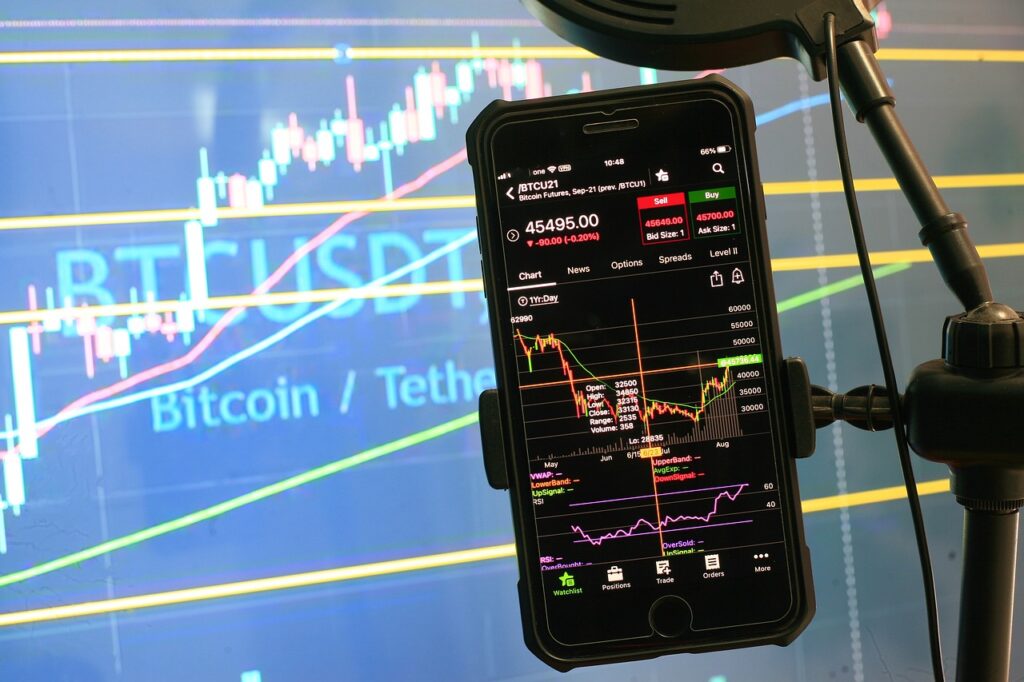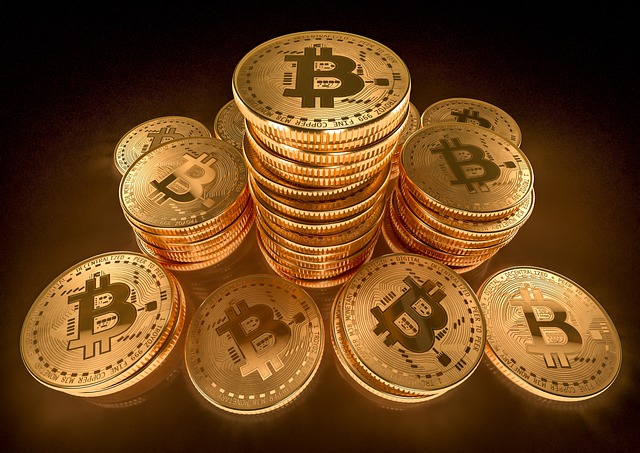The Building Blocks of DeFi: Understanding the System
The Building Blocks of DeFi: Understanding the System

The Basics of DeFi: Getting Started with Decentralized Finance
Decentralized Finance, or DeFi for short, has been making waves in the world of cryptocurrencies and blockchain technology. It refers to the use of decentralized applications (dApps) to recreate traditional financial systems without the need for intermediaries like banks or financial institutions. One of the main advantages of DeFi is its accessibility. Anyone with an internet connection can participate in this financial revolution, regardless of their geographic location or financial status.
To get started with DeFi, you’ll need a few essential tools. First and foremost, you’ll need a reliable internet connection and a device like a smartphone or computer. Next, you’ll need a digital wallet that supports decentralized applications. This wallet will store your cryptocurrencies and allow you to interact with DeFi platforms. Once you have these basics in place, you can start exploring the wide range of decentralized finance services available.

The Role of Smart Contracts in DeFi: Automating Transactions
Smart contracts play a crucial role in the world of decentralized finance (DeFi) by automating transactions. These self-executing contracts are built on blockchain platforms like Ethereum, and they enable parties to engage in trustless transactions without the need for intermediaries. By eliminating the need for middlemen such as banks or brokers, smart contracts offer greater efficiency, transparency, and security in the DeFi ecosystem.
One of the key advantages of smart contracts is their ability to execute transactions automatically once predefined conditions are met. This automation eliminates the need for manual intervention, reducing human error and increasing the speed at which transactions are completed. For example, in a decentralized exchange, smart contracts can facilitate the instant exchange of tokens between users, ensuring that trades are executed swiftly and accurately. By removing the need for a centralized authority to oversee transactions, smart contracts provide users with more control over their financial activities, promoting a truly decentralized financial system.
Exploring Ethereum: The Foundation of DeFi
Ethereum, often regarded as the backbone of decentralized finance (DeFi), has revolutionized the way we interact with blockchain technology. Launched in 2015 by Vitalik Buterin, Ethereum introduced the concept of smart contracts, enabling the creation of decentralized applications (dApps) and programmable transactions. These smart contracts are self-executing agreements with predefined rules, eliminating the need for intermediaries and providing a secure and transparent environment for financial interactions.
With Ethereum’s robust infrastructure, developers can now build a wide range of DeFi applications, including decentralized exchanges (DEXs), lending platforms, and yield farming protocols. Ethereum’s native cryptocurrency, Ether (ETH), serves as the fuel that powers these transactions and enables users to participate in the DeFi ecosystem. As a result, Ethereum has become the go-to platform for DeFi projects, attracting high-profile collaborations and billions of dollars worth of investments. The groundbreaking potential of Ethereum continues to drive innovation and reshape the world of finance as we know it.
• Ethereum was launched in 2015 by Vitalik Buterin and introduced the concept of smart contracts.
• Smart contracts are self-executing agreements with predefined rules, eliminating the need for intermediaries.
• Ethereum provides a secure and transparent environment for financial interactions.
• Developers can build various DeFi applications on Ethereum, including DEXs, lending platforms, and yield farming protocols.
• Ether (ETH) is Ethereum’s native cryptocurrency that powers transactions within the DeFi ecosystem.
• Ethereum has attracted high-profile collaborations and billions of dollars worth of investments in the DeFi space.
• The groundbreaking potential of Ethereum continues to drive innovation in finance.
Understanding Decentralized Exchanges: Trading Without Intermediaries
Decentralized exchanges (DEXs) have revolutionized the way we trade cryptocurrencies by eliminating intermediaries from the process. Unlike traditional exchanges where transactions involve a middleman, DEXs enable peer-to-peer trading directly on the blockchain. This eliminates the need for trust in third parties, as the smart contracts on the blockchain handle the transactions securely and transparently. With DEXs, users have full control of their funds, with no need to deposit them into a central entity. This ensures greater security and reduces the risk of hacks or funds being frozen by a centralized authority. While DEXs were initially regarded as less user-friendly and with limited liquidity compared to their centralized counterparts, they have made significant progress in recent years. Several DEXs now offer seamless user experiences and high liquidity, attracting both retail traders and institutional investors to the decentralized trading ecosystem.
One of the key advantages of decentralized exchanges is the ability to maintain privacy and anonymity. By eliminating the need for user registration and KYC processes, DEXs allow traders to retain their privacy while participating in the market. This has been particularly appealing to users who value the pseudonymous nature of cryptocurrencies and are concerned about their personal information being exposed. Additionally, DEXs provide a global market accessible to anyone with an internet connection, removing the barriers and limitations that come with traditional exchanges. Traders from any part of the world can engage in transactions without the need for complex cross-border procedures or restrictions. This has opened up a world of opportunities for individuals in countries with limited access to traditional financial systems, empowering them to participate in the global economy on their own terms.
Liquidity Providers in DeFi: Fueling the Ecosystem
Liquidity providers play a crucial role in the DeFi ecosystem by ensuring that there are sufficient funds available for users to trade and access various financial services. They essentially act as the backbone of decentralized exchanges, lending platforms, and other DeFi protocols. By depositing their cryptocurrencies into liquidity pools, these providers enable users to easily buy, sell, and borrow assets.
One of the main incentives for liquidity providers is the opportunity to earn passive income through transaction fees and rewards. As users trade on a decentralized exchange, liquidity providers earn a portion of those fees, proportional to their contribution to the pool. Additionally, many DeFi protocols offer yield farming opportunities where liquidity providers can stake their tokens and receive additional rewards. This creates an attractive avenue for individuals looking to generate returns on their crypto assets. However, it is important to note that liquidity provision also carries risks, such as impermanent loss, which can cause the value of deposited assets to fluctuate.
The Power of Stablecoins: Keeping Crypto Stable in DeFi
Stablecoins are a revolutionary asset in the world of decentralized finance (DeFi).

One of the biggest advantages of stablecoins in DeFi is their ability to maintain a constant value. This stability allows users to transact and store value without the worry of rapid price changes. Whether you’re a trader looking to hedge against market volatility or a user seeking a safe haven for your funds, stablecoins offer a reliable solution. Moreover, stablecoins enable seamless transferability and enable users to bypass traditional banking systems, making them an attractive option for individuals in regions with limited access to financial services. In the ever-evolving landscape of DeFi, stablecoins have emerged as a crucial tool for keeping crypto stable and serving as a gateway to the broader world of finance.
Governance Tokens: Participating in Decision-Making
Governance tokens play a vital role in the decentralized finance (DeFi) ecosystem by enabling participants to contribute and participate in decision-making processes. These tokens, typically distributed through token offerings or liquidity mining programs, give holders the power to shape the future of the platform.

Participating in decision-making through governance tokens can be an exciting opportunity for individuals passionate about the DeFi space. It allows them to have a direct say in shaping the development and direction of the platform they are invested in. By owning governance tokens, investors become active participants rather than mere spectators in the decision-making process, aligning the interests of the community with their own. This level of involvement fosters a sense of ownership and accountability, as individuals collectively work towards the continuous improvement and growth of the DeFi ecosystem.
The Rise of Yield Farming: Earning Passive Income in DeFi
The rise of yield farming has revolutionized the way people can earn passive income in the world of decentralized finance (DeFi). With traditional investments, earning passive income often involves holding assets like stocks or bonds and waiting for their value to appreciate. However, yield farming takes a different approach by allowing individuals to earn rewards by participating in liquidity provision and various DeFi protocols.
Yield farming essentially involves providing liquidity to DeFi platforms in exchange for earning additional tokens as rewards. This is achieved by locking up crypto assets in smart contracts that facilitate the lending, borrowing, or trading of these assets. By staking their assets, individuals can earn passive income through the rewards distributed by the platform. The rewards can vary depending on factors like the amount of liquidity provided, the duration of the stake, and the specific protocols used. Yield farming has gained popularity due to its potential for high returns, although it also comes with certain risks that individuals should be aware of before participating.
Insurance in DeFi: Protecting Your Assets
Insurance plays a crucial role in DeFi by providing a layer of protection for users’ assets. In a decentralized ecosystem where trust is built on smart contracts, insurance acts as a safety net, guarding against potential risks and vulnerabilities. By purchasing insurance policies, individuals can mitigate the potential losses caused by hacks, vulnerabilities, or smart contract failures.
Unlike traditional insurance, which often involves extensive paperwork and intermediaries, DeFi insurance operates on a blockchain, offering a more streamlined and efficient process. Users can easily browse through different insurance providers and select policies that best suit their needs. Additionally, by leveraging the transparency and immutability of blockchain technology, DeFi insurance ensures that claims and payouts are executed accurately and swiftly. By participating in insurance within the DeFi ecosystem, users can proactively protect their investments and participate in a more secure and trusted financial landscape.
The Future of DeFi: Scalability and Interoperability
Scalability and interoperability are two crucial aspects that will shape the future of decentralized finance (DeFi). As more users and applications flock to the DeFi ecosystem, there is a growing need for efficient and scalable solutions. Currently, DeFi platforms built on the Ethereum blockchain face limitations in terms of transaction throughput and high gas fees. To overcome these hurdles and pave the way for mass adoption, various scaling solutions, such as layer 2 solutions, sidechains, and interoperability protocols, are being explored.
Scaling solutions aim to increase the number of transactions that can be processed simultaneously, without compromising the security and decentralization of the network. Layer 2 solutions, for instance, enable off-chain transactions that can be settled on the main Ethereum blockchain, reducing congestion and improving transaction speed. Sidechains, on the other hand, are independent blockchains that can interact with the main Ethereum chain, allowing for faster and cheaper transactions. Interoperability protocols, like Polkadot and Cosmos, enable different blockchains to communicate and share information, creating a connected and interoperable DeFi ecosystem.
By addressing scalability and interoperability challenges, DeFi can unlock its true potential and offer enhanced user experiences. With improved scalability, DeFi platforms will be able to accommodate a larger user base, facilitating seamless transactions and better liquidity. Additionally, interoperability will enable users to access a wider range of assets and applications across different blockchains, fostering innovation and expanding the possibilities of DeFi. As the development of scaling solutions and interoperability protocols progresses, DeFi is poised to transform the traditional financial landscape, providing accessible and inclusive financial services to individuals worldwide.
What is DeFi?
DeFi stands for Decentralized Finance, which is a system that allows individuals to engage in financial activities without relying on traditional intermediaries like banks.
How can I get started with DeFi?
To get started with DeFi, you’ll need a compatible wallet, such as MetaMask, and access to the Ethereum network. From there, you can explore various DeFi platforms and start participating in decentralized finance.
What role do smart contracts play in DeFi?
Smart contracts are self-executing contracts with predetermined rules encoded within them. In DeFi, smart contracts automate transactions, ensuring transparency, security, and efficiency.
Why is Ethereum important for DeFi?
Ethereum is the foundation of DeFi because it provides the infrastructure for smart contracts and decentralized applications (dApps), enabling developers to build innovative financial solutions.
What are decentralized exchanges (DEXs)?
Decentralized exchanges allow users to trade cryptocurrencies directly with one another, eliminating the need for intermediaries. DEXs provide greater control, security, and privacy compared to centralized exchanges.
Who are liquidity providers in DeFi?
Liquidity providers are individuals who supply funds to DeFi platforms, allowing others to trade and access liquidity. They earn fees and rewards for their contribution to the ecosystem.
What are stablecoins and why are they important in DeFi?
Stablecoins are cryptocurrencies that are designed to maintain a stable value, often pegged to a fiat currency like the US dollar. They provide stability in DeFi and serve as a bridge between traditional finance and the crypto world.
What are governance tokens in DeFi?
Governance tokens grant holders the right to participate in decision-making processes regarding the development and direction of a decentralized protocol or platform within the DeFi ecosystem.
What is yield farming?
Yield farming is a way to earn passive income in DeFi by lending, staking, or providing liquidity to protocols. Users can maximize their returns by moving their funds between different platforms to capture the highest yield.
Is insurance available in DeFi?
Yes, insurance solutions are emerging in DeFi to protect users’ assets from risks like hacks or smart contract failures. These insurance protocols offer coverage against potential losses and provide peace of mind to participants.
What does the future hold for DeFi in terms of scalability and interoperability?
The future of DeFi lies in improving scalability and interoperability to handle larger transaction volumes and facilitate seamless communication between different blockchains. Solutions like layer 2 scaling and cross-chain bridges are being developed to address these challenges.
Todays Featured Product:
Buy, exchange and grow your crypto securely with a Ledger hardware wallet, combined with the Ledger Live app. It’s never been easier to keep your crypto safe and accessible. Buy direct from Ledger.com and get todays Special Offers Here.




